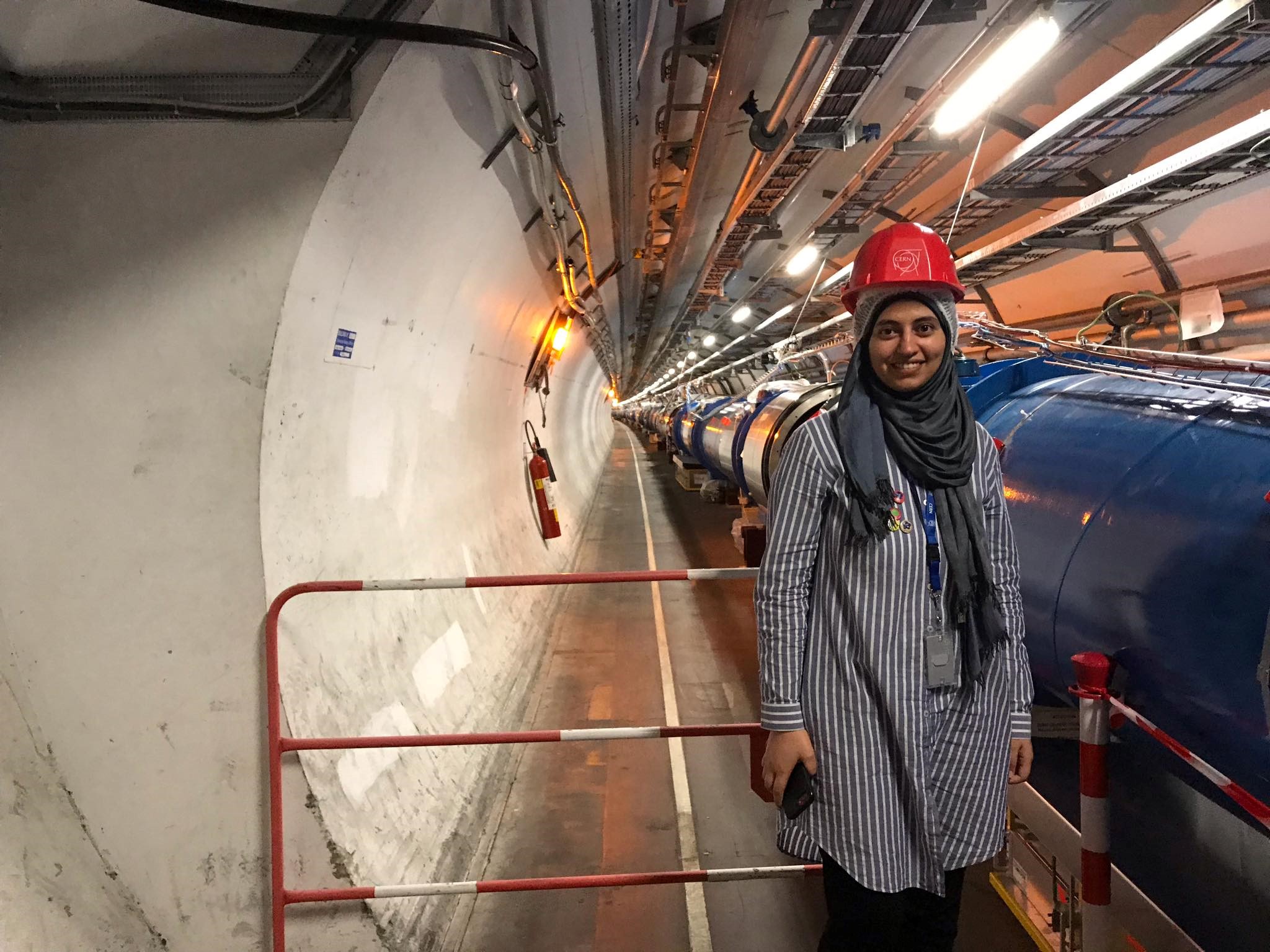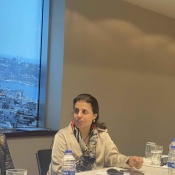Shayma Wahdan and Science: From Birzeit to Germany
Shayma Wahdan, Birzeit University alumna, prepares to return to Palestine after obtaining her PhD at the University of Wuppertal, Germany. When she studied at Birzeit University, Wahdan took a course on particle physics that marked a turning point in her academic pursuits, as it prompted her to pursue her graduate studies in elementary particle physics.
Wahdan received her bachelor’s and master’s degrees in physics at Birzeit University and worked as a teaching assistant in the Department of Physics. During her master’s studies, Wahdan received the North Rhine-Westphalia scholarship to join a research team at the University of Wuppertal, Germany, for three months. She also took a summer internship at the European Organization for Nuclear Research (CERN), Switzerland, where she conducted research on the CMS experiment in light of the homology theory.
Her master’s thesis “Preparatory Studies on the Determination of the Top-Quark Mass in Single Top-Quark Events with the ATLAS Detector at the LHC” was supervised by Dr. Wafa Khater, dean of the Faculty of Science in Birzeit University, and Dr. Wolfgang Wagner, professor in the University of Wuppertal, Germany. Her PhD dissertation “Measurement of Observables Sensitive to Color Reconnection with the ATLAS Experiment” was accepted for publication in the European Physical Journal C.
On studying at Birzeit University, Wahdan maintained, “In addition to the university’s national and academic status, one of my schoolteachers, a Birzeit University alumna, implemented the love of Birzeit in me. Her distinguished personal characteristics and teaching skills encouraged me to join the university. I received a full scholarship to study physics at Birzeit, as the Faculty of Science grants full scholarships to outstanding students.”
Wahdan’s passion for physics urged her to overcome many obstacles, including social challenges and stereotypes that obstruct women from studying abroad. Wahdan added, “One of the obstacles I encountered when I arrived in Germany was the language barrier, as I didn’t speak German. Another challenge was coping with Germany’s individualist culture that promotes individuality and independency, as opposed to Palestine and other collectivist societies, where people look after each other.”
Wahdan addressed female students, particularly those in the Faculty of Science, by saying, “Follow your passion and work hard. You will definitely encounter challenges, but success is never easy. With persistence, you will overcome challenges and flourish.”
Dr. Khater stressed the significance of providing the opportunity for women to pursue graduate studies in science. She also emphasized Birzeit University’s role in supporting and providing equal opportunities for female students to empower them to lead academic and scientific committees.







